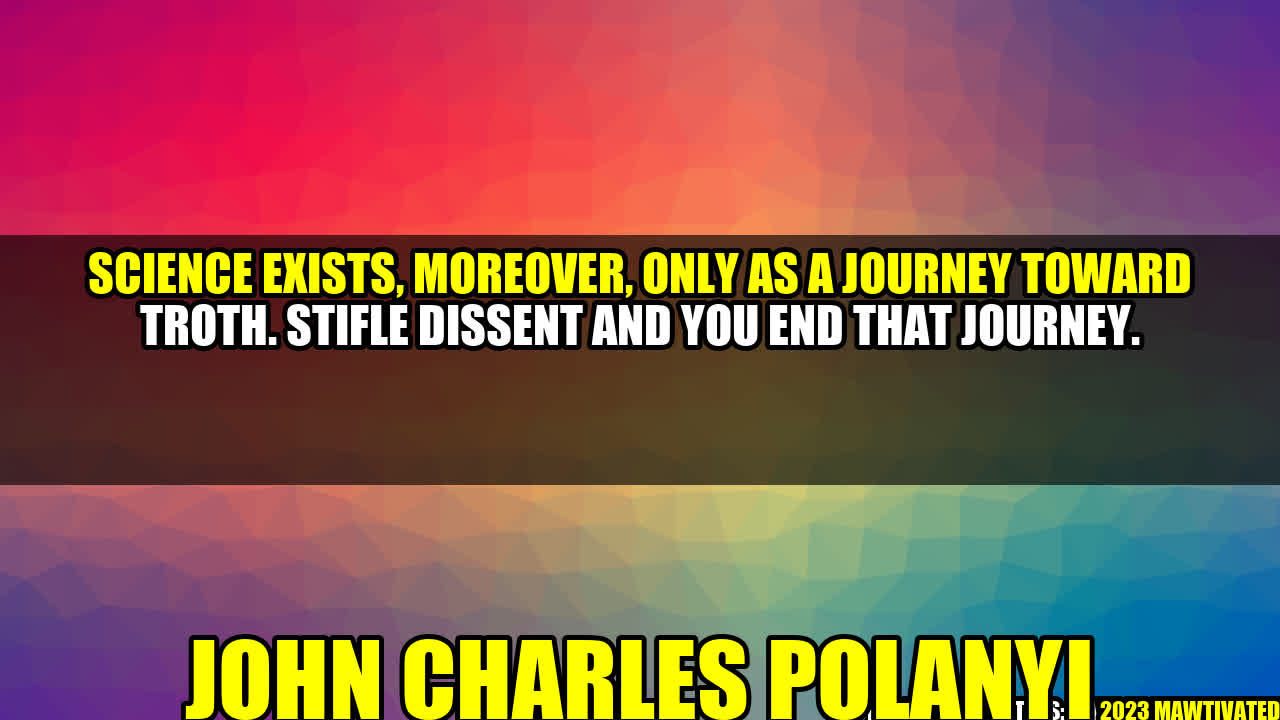Science: A Journey Towards Truth

Let me tell you the story of John Charles Polanyi, a Hungarian-Canadian chemist who won the Nobel Prize in Chemistry in 1986. Born in 1929 in Berlin, his family fled to Hungary to escape the rise of Nazi Germany. When the Nazis invaded Hungary, John and his family went into hiding, and he had to discontinue his studies. After the war, he resumed his education and pursued a career in science.
Polanyi’s research focused on chemical reactions, and he developed a technique called infrared chemiluminescence, which allows scientists to study chemical reactions in real-time. His work contributed to our understanding of how these reactions occur, and his contributions to science have been immense.
Polanyi’s story is a testament to the power of science and its role in advancing our knowledge of the world. Science exists to seek the truth and push the boundaries of human knowledge. And yet, it’s not always a smooth journey.
Science, like any other pursuit of knowledge, requires open-mindedness, curiosity, and the willingness to challenge assumptions. However, there are often forces that seek to stifle dissent and close off avenues of inquiry. When this happens, science becomes stagnant, and progress stalls.
As Polanyi has said, “Science exists, moreover, only as a journey toward truth. Stifle dissent, and you end that journey.” With that in mind, let’s explore some ways that dissent can be stifled in the pursuit of scientific truth, and how we can work to prevent these roadblocks.
Suppressing Dissent in Science
- Political Interference: When science is subject to political pressure, it can become difficult to pursue certain lines of inquiry. Politicians may silence or ignore findings that conflict with their views, or may direct funding towards research that aligns with their political agenda.
- Funding Disparities: Lack of funding can stifle dissent and limit the pursuit of scientific knowledge. Research is expensive, and without adequate financial support, scientists may be unable to pursue certain avenues of inquiry.
- Groupthink: In a field dominated by a single perspective, dissent can be seen as a threat to the status quo. Groupthink can occur when a particular ideology or perspective dominates a field, and scientists who question the prevailing dogma may be ostracized or discouraged from pursuing certain lines of inquiry.
- Confirmation Bias: When scientists are invested in a particular hypothesis or theory, they may be resistant to alternative ideas or data that contradict their beliefs. Confirmation bias can lead to cherry-picking data to support a particular conclusion, rather than following the data where it leads.
Preventing the Stifling of Dissent in Science
As important as it is to understand how scientific inquiry can be stifled, it’s equally vital to consider ways to prevent these roadblocks. Here are some suggestions:
- Foster a culture of open-mindedness: Encourage scientists to question assumptions, challenge prevailing beliefs, and consider alternative perspectives.
- Diversify funding sources: Seek funding from a variety of sources to limit the influence of any one political or ideological agenda.
- Maintain healthy skepticism: Encourage scientists to question their own biases, and to approach data with an open mind.
- Promote collaboration: Encourage cross-disciplinary collaboration and sharing of findings to foster new ideas and perspectives.
Conclusion
In conclusion, science is a powerful tool for understanding the world around us, but it’s not infallible. The pursuit of knowledge is an ongoing journey, and dissent is a vital part of that journey. When we stifle dissent, we risk closing off avenues of inquiry and limiting progress.
In order to promote the free exchange of ideas and prevent the suppression of dissent in science, we must foster a culture of open-mindedness, diversify funding sources, maintain healthy skepticism, and promote collaboration. By doing so, we can continue on the journey towards truth that John Charles Polanyi and other scientists have embarked upon.
Let us remember that science is not a destination, but rather a journey towards knowledge. And let us stay curious, stay open-minded, and continue on that journey.

Curated by Team Akash.Mittal.Blog
Share on Twitter
Share on LinkedIn